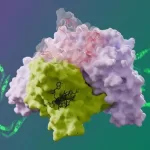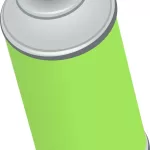New Delhi, June 15, 2024 – In a landmark survey, the National Sample Survey Office (NSSO) has revealed that a significant portion of the Indian population, both rural and urban, has turned to the Ayush system of medicines for the prevention and treatment of ailments over the past year. The survey indicates that 46% of rural residents and 53% of urban residents have used Ayush treatments in the last 365 days.
Ayush, which encompasses Ayurveda, Yoga and Naturopathy, Unani, Siddha, and Homeopathy, is deeply rooted in Indian culture and tradition. The survey, which covered 1,81,298 households—1,04,195 in rural areas and 77,103 in urban areas—provides a comprehensive overview of the nation’s reliance on traditional medicine.
High Awareness Levels
The findings show an impressive level of awareness about Ayush across the country, with 95% of rural and 96% of urban respondents being familiar with these traditional medical practices. This widespread awareness underscores the deep cultural penetration of Ayush systems in Indian society.
Household Knowledge of Medicinal Plants and Folk Medicine
A notable aspect of the survey is the knowledge of medicinal plants, home remedies, and local health traditions among Indian households. Approximately 85% of rural and 86% of urban households have at least one member who is aware of these traditional health resources. This reflects a strong community knowledge base that supports the use of natural and locally available treatments.
“About 79% of households in rural India and 80% in urban India have at least one member aware of medicinal plants and home remedies, while around 24% have at least one member aware of folk medicine or local health traditions,” the survey reported.
Gender-Based Awareness
The survey also highlighted that awareness of Ayush is evenly spread among males and females aged 15 years and above. In rural India, 95% of both males and females are aware of Ayush, while in urban India, the figure is around 96%.
Objectives of the Survey
The NSSO conducted this survey to gather information on several key areas:
- Public awareness of traditional healthcare systems
- Usage of Ayush for prevention and treatment of ailments
- Household awareness of home remedies, medicinal plants, and local health traditions
Implications and Future Prospects
These findings are significant for policymakers and healthcare providers, as they indicate a substantial acceptance and reliance on traditional medicine systems. The high awareness and usage rates suggest that integrating Ayush with modern healthcare systems could improve public health outcomes.
The Ministry of Ayush, which has been promoting these traditional systems, can use these insights to further develop and refine its strategies, ensuring that the benefits of Ayush are maximized across the country.
Conclusion
The NSSO’s comprehensive survey has shed light on the deep-rooted trust and reliance on Ayush medicines in India. With both urban and rural populations showing high levels of awareness and usage, Ayush continues to be a vital part of the country’s healthcare landscape.











